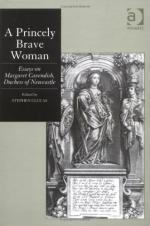|
This section contains 5,541 words (approx. 19 pages at 300 words per page) |

|
SOURCE: "Nature is a Woman: The Duchess of Newcastle and Seventeenth-Century Philosophy," in Man, God, and Nature in the Enlightenment, Donald C. Mell, Jr., Theodore E. D. Braun, and Lucia M. Palmer, eds., Colleagues Press, 1988, pp. 51-64.
Here, Blaydes reacts against the dismissal of Cavendish's philosophical works as eccentric and fanciful, emphasizing their importance to the history of philosophy, and placing her in the tradition of rational materialism proclaimed by such eminent philosophers as Descartes and Locke.
Margaret Lucas Cavendish, the Duchess of Newcastle (1623?-73), often reminded her readers that women were part of God's creation. On one occasion, she offered a lovely prayer that is ostensibly from Nature to God:
Eternal God, Infinite Deity,
Thy Servant, Nature humbly prays to Thee,
That thou wilt please to favour Her, and give
Her parts, which are Her Creatures, leave to live….
Assuring God of her adoration, Nature prays for...
|
This section contains 5,541 words (approx. 19 pages at 300 words per page) |

|


